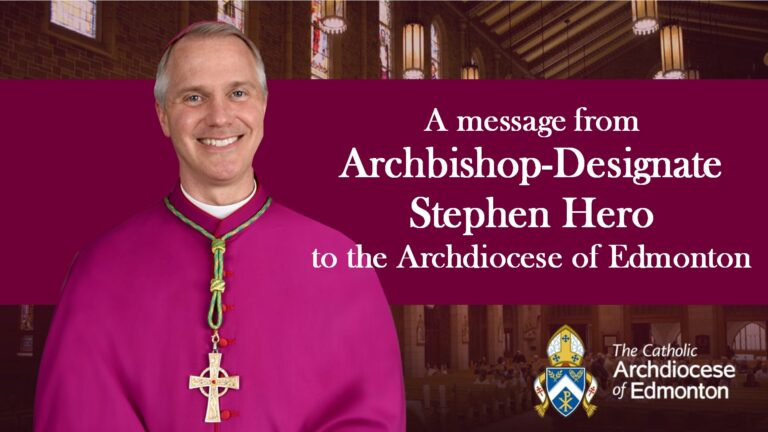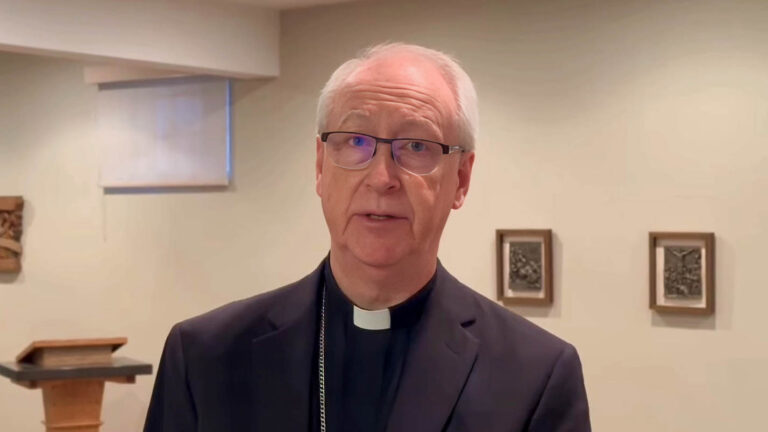First Sunday of Lent – Year B
Homily
[Genesis 9:8-15; Psalm 25; 1Peter 3:18-22; Mark 1:12-15]
There seems to be a lot of sickness going around these days. I know at the office some of my colleagues have been experiencing chills, sniffles, nausea, fatigue, and so on. We know these are all symptoms of something, but often not at all sure of what, exactly. So, they’ve been taking themselves off to one who would know, the doctor, who can not only diagnose the illness but also prescribe the remedy.
I have also noticed over the last while another “symptom of something” that is affecting wide swathes of the population, both locally and globally. I am speaking of widespread worry and anxiety. It is certainly understandable; there are many unsettling developments in our families, our culture, and our world that can leave us deeply troubled. But even as we name these factors, we need to be on guard against self-diagnosis. We might think we understand what is causing our worry and fear, but to be sure, we need to go to the expert source who does know, and, like a good doctor, can name the underlying disease accurately and tell us clearly how it is to be cured.
That needed font of wisdom and understanding is, of course, the Word of God. In the biblical texts for today’s Mass, we are given both diagnosis and remedy for the anxiety, fear, dread, or sometimes despair that is gripping many people. As we ponder God’s Word, the diagnosis points to a spiritual illness, namely, loss of trust in the love of God. The prescribed antidote is faith.
The passage from the Gospel of Saint Mark opens with Jesus being tempted by the devil in the desert. St. Mark does not spell out the details of this encounter, but we know from Saint Matthew that the devil, in a number of ways, tried to tempt Jesus not to trust his heavenly Father and instead to take matters into his own hands. That is the very same way Satan tempted Adam and Eve and the very same way he continues to tempt us. The devil’s work is always grounded in the lie that God is not to be trusted, that we have to, and can, rely on ourselves. Here we have the root illness: surrender to the temptation to allow our trust in God to die and depend instead upon others or ourselves. In the face of the many dark and difficult developments far beyond our control, it is no wonder we are suffering from anxiety and dread!
This leads directly to the remedy. Notice how it is given by the first words that Mark records of our Lord. It is as if Jesus, once he has resisted the temptation of Satan, wastes no time in communicating the remedy to us who very often succumb to it: “Repent and believe the good news.” Stop trusting in yourselves; rely instead on the good news, the truth of the love of God, who never abandons us and comes always to our rescue. In short, have faith. It is the only effective remedy.
Our other readings are beautiful expansions on the “good news” that Jesus announces, that Jesus, in fact, is. They demonstrate why we can, and should, have faith in God.
From Genesis we have the narration of the wondrous promise God made to Noah after the flood. It is God’s first promise of His covenant fidelity to us. God at that moment makes a solemn pledge to establish a covenant, a bond of love, with His people, to which God would be forever faithful. Subsequent generations were unfaithful to this covenant, but God remains always faithful to His promise to us. His fidelity is demonstrated with overwhelming clarity in the gift of His Son, who manifested the steadfast love of God in his death and resurrection, by which God established a new and unbreakable bond with all humanity. The covenant love of God, definitively established in the gift of Jesus, endures forever. God is entirely trustworthy.
This wondrous love of God first washed over us at Baptism. This sacrament, we hear Saint Peter tell us in the second reading, unites us to Jesus the Risen Lord, now reigning in power in heaven. From this union with our Lord, we live within and from the covenant love of God. Our life, then, is one of perpetual faith, an endlessly renewed decision to trust in God’s love and not rely upon our human weakness and limits. By making the decision each and every day to trust in God, to place our complete faith in Him, the antidote flows through us and heals our anxiety and fear.
In our daily living we can easily catch the cold, flu or other illnesses by coming in contact with people already suffering from them. Daily we are in contact with a culture that suffers from self-assertion and self-reliance, making it also easy to “catch” our world’s surrender to the temptation not to trust God. At the outset of Lent, our call is to face this temptation and others that flow from it, and ask the Lord to enable us to resist and overcome them by our faith in him and the power of his love. May the grace of the Eucharist, this morning, overcome our anxiety and fear by renewing and strengthening our faith in the covenant love of God.
Most Reverend Richard W. Smith
Saint Joseph Basilica
February 18th, 2024


